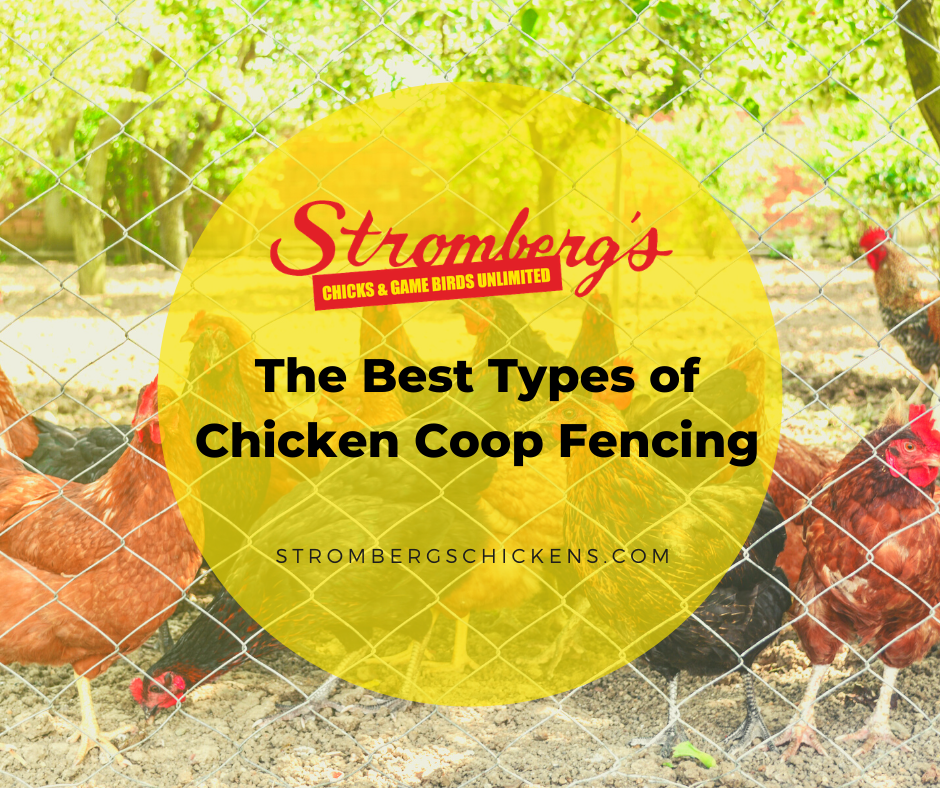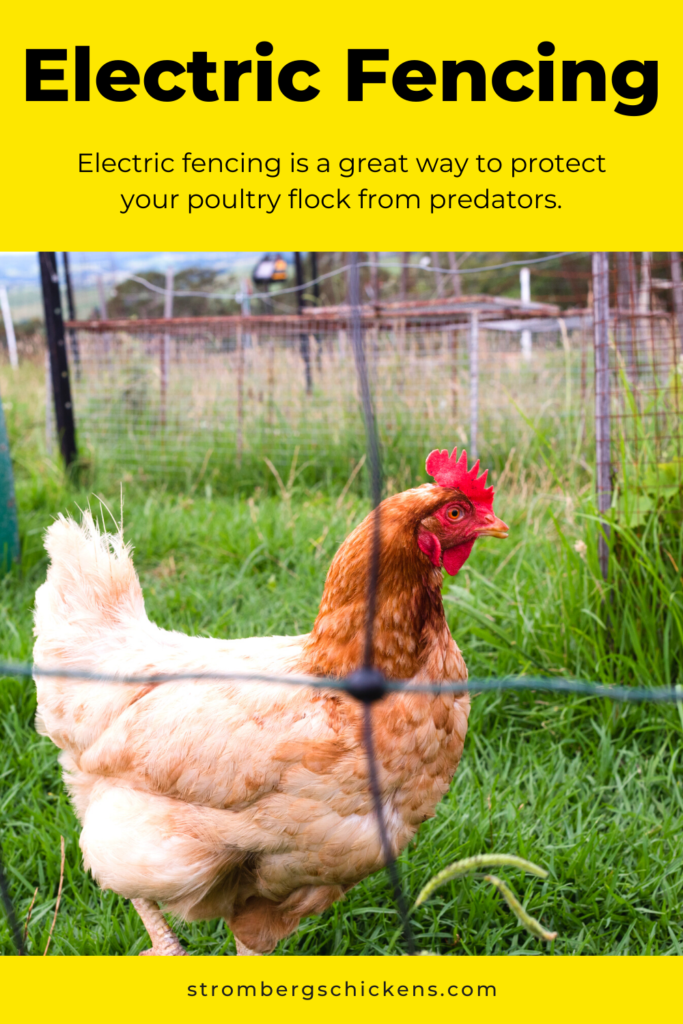The Best Types of Chicken Coop Fencing
Security is one of the most important parts of a chicken coop. The right fencing keeps out predators and ensures your chickens can eat, sleep, and explore their run in peace. There are several types of fencing or netting you can use to secure your coop, but which one is right for you? Weigh the pros and cons of each of the best types of chicken coop fencing with this guide.

CHICKEN WIRE
Many people turn to chicken wire when building their coops—after all, “chicken” is right there in the name. This thin, woven wire is an affordable option for your coop. It effectively keeps chickens in, but it might not successfully deter raccoons, rats, or other small creatures.
Chicken wire is great for protecting higher-up portions of the coop that predators can’t get to. You can also use chicken wire within the coop to isolate aggressive birds or keep older chickens away from pullets.
HARDWARE CLOTH
Hardware cloth is a strong, welded wire fence that can stand up against larger predators like coyotes and foxes. Hardware cloth comes in different sizes, so you’ll have to choose a size that can keep out snakes, rats, and other small predators. For extra protection, you can also bury hardware cloth a few inches beneath the ground to deter burrowing creatures.
CHAIN LINK
This popular fencing is easy to find at any local hardware store. Chain link fences are strong enough to keep out even your toughest predators. However, the holes in the fence are large enough for smaller predators to easily crawl through. You’ll have to watch out for reaching raccoon hands as well. Chain link fences work well as an exterior border as long as your chickens have somewhere safe to retreat to away from the fence.
CHICKEN COOP NETTING
Chicken coop netting, also known as poultry netting, is like a plastic version of chicken wire. It’s flexible and able to keep your chickens in, but it’s not strong enough to deter most predators. However, this lightweight option is perfect for overhead protection and can keep your flock safe from hawks, owls, and other birds of prey.
ELECTRIC FENCING
Electric fencing is a great way to protect your chickens while they free roam around the coop. If you deal with large predators like bears, wolves, or cougars, electric fencing offers significant protection. It’s also easier to move electric fencing, which means your birds can roam in different locations whenever you want. Electric fencing comes with steeper initial costs, but once you have it up and running, all you need is a little maintenance to ensure your chickens stay safe.

Which of these best types of chicken coop fencing do you use to protect your flock? We’d love to hear from you in the comments below!

